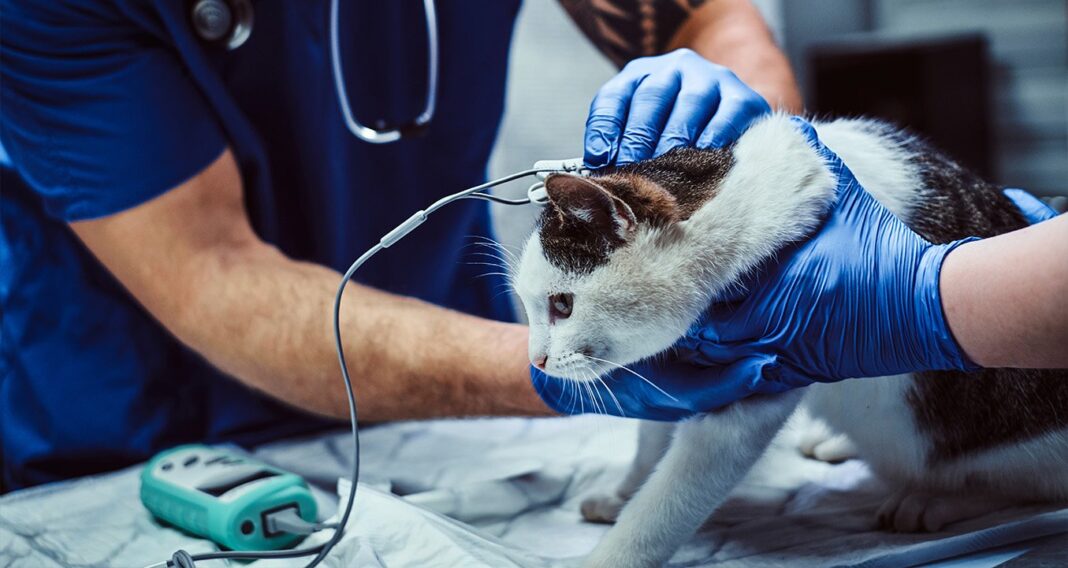Just like humans, animals can suffer from a range of heart-related conditions that require specialized attention. Early detection and proper management of heart disease in pets can significantly improve their quality of life and lifespan. This is where veterinary cardiology plays a crucial role, offering advanced diagnostics, treatments, and preventive care tailored to the unique needs of each animal.
What Is Vet Cardiology?
vet cardiology is a specialized field within veterinary medicine focused on diagnosing and treating heart and circulatory system conditions in animals. It deals with diseases that affect the heart muscle, heart valves, electrical system, and blood vessels. By applying advanced diagnostic tools and medical expertise, veterinary cardiologists can identify issues early, prescribe targeted treatments, and guide pet owners on long-term management strategies.
Common Heart Conditions in Pets
Heart disease in pets can present in many forms. While some conditions are congenital (present from birth), others develop over time due to age, breed predispositions, or lifestyle factors.
Common conditions include:
- Mitral Valve Disease (MVD): A degenerative condition where the heart’s valves do not close properly, leading to inefficient blood flow.
- Dilated Cardiomyopathy (DCM): Enlargement of the heart chambers, causing weakened contractions and reduced circulation.
- Hypertrophic Cardiomyopathy (HCM): Common in cats, this condition thickens the heart muscle, restricting normal blood flow.
- Congestive Heart Failure (CHF): A result of untreated or advanced heart conditions, where fluid builds up in the lungs or abdomen.
- Arrhythmias: Abnormal heart rhythms that may lead to fainting, weakness, or even sudden collapse.
Signs That Your Pet May Have a Heart Problem
Recognizing the signs of heart disease in pets can be challenging since symptoms may appear subtle at first. Pet owners should be observant and seek veterinary attention if they notice:
- Persistent coughing, especially at night or after activity.
- Difficulty breathing or rapid breathing when resting.
- Fatigue or reluctance to exercise.
- Fainting or sudden collapse.
- Loss of appetite and weight loss.
- Swollen abdomen due to fluid buildup.
These symptoms often indicate underlying cardiovascular issues and require prompt veterinary evaluation.
The Role of Diagnostic Testing in Cardiology
Modern veterinary cardiology relies heavily on diagnostic tools to accurately assess the condition of a pet’s heart.
Common diagnostic tests include:
- Echocardiography (Ultrasound): Provides detailed images of the heart’s structure and function.
- Electrocardiogram (ECG): Measures electrical activity to detect arrhythmias.
- Chest X-rays: Helps identify enlarged hearts, fluid buildup, or lung changes.
- Blood Pressure Monitoring: Essential for evaluating cardiovascular health.
- Blood Tests: Check for underlying conditions that may impact heart function.
These tools allow veterinarians to make precise diagnoses and create personalized treatment plans.
Treatment Approaches in Veterinary Cardiology
Treatment depends on the type and severity of the heart condition. While some pets may only need lifestyle adjustments and monitoring, others require long-term medications or surgical interventions.
Typical treatments include:
- Medications: Such as diuretics, ACE inhibitors, or anti-arrhythmic drugs to manage symptoms and improve heart efficiency.
- Surgical Procedures: Corrective surgeries may be recommended for congenital defects.
- Dietary Management: Specialized diets to reduce strain on the heart and prevent fluid accumulation.
- Activity Modification: Adjusting exercise routines to match the pet’s tolerance and condition.
With appropriate care, many pets with heart disease can lead long, comfortable lives.
Preventive Care for Heart Health
Preventive measures can greatly reduce the risk of cardiovascular issues in pets. Pet owners should prioritize:
- Regular Check-ups: Annual or semi-annual visits help detect early signs of heart disease.
- Dental Care: Poor oral hygiene can contribute to bacterial infections that affect the heart.
- Weight Management: Obesity is a major risk factor for heart and circulatory issues.
- Parasite Control: Heartworm prevention is essential, especially in regions where mosquitoes are common.
- Balanced Nutrition: Feeding pets a high-quality, species-appropriate diet supports overall heart health.
Breed-Specific Risks
Certain breeds are genetically predisposed to heart conditions. For instance, Cavalier King Charles Spaniels are prone to mitral valve disease, while Dobermans often develop dilated cardiomyopathy. Maine Coon cats and Ragdolls are more susceptible to hypertrophic cardiomyopathy. Awareness of these risks allows owners to schedule more frequent screenings and take preventive measures early.
Supporting Pets with Heart Disease
Caring for a pet with a heart condition requires dedication, patience, and close collaboration with veterinary professionals. Pet owners can support their pets by:
- Administering medications consistently.
- Following exercise and diet recommendations.
- Monitoring for new or worsening symptoms.
- Maintaining regular follow-up appointments.
- Providing a stress-free, comfortable home environment.
Emotional support and a stable routine play a big role in improving the pet’s quality of life.
The Future of Veterinary Cardiology
As veterinary medicine continues to advance, so does cardiology. Innovations such as minimally invasive heart surgeries, advanced imaging techniques, and genetic testing are becoming more accessible. These advancements allow earlier detection, more precise treatment, and improved outcomes for pets with heart conditions.
Conclusion
The heart is one of the most vital organs in a pet’s body, and maintaining its health requires specialized care. vet cardiology provides the expertise needed to diagnose, treat, and manage heart conditions in animals, giving them the chance to live longer and healthier lives. Through preventive care, advanced diagnostics, and ongoing treatment, veterinary cardiology ensures pets receive the highest level of cardiovascular support. For pet owners, understanding the signs of heart disease and acting promptly can make all the difference in preserving their companion’s well-being.




